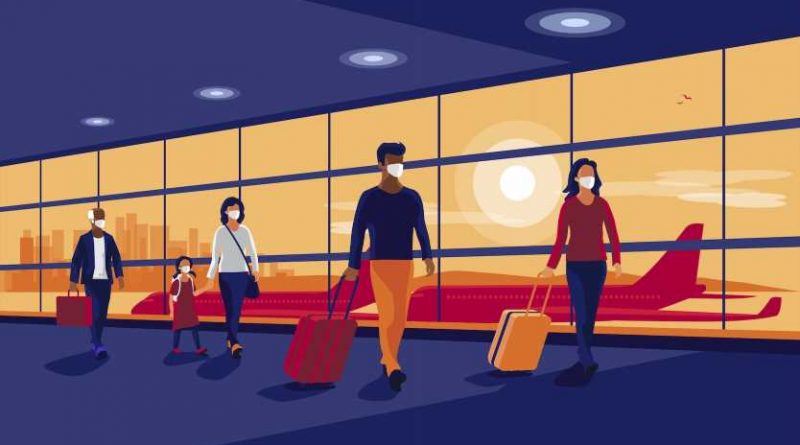No Mask While Traveling? You Could Be Fined up to $1,500
© Image by Shutterstock
No Mask While Traveling? You Could Be Fined up to $1,500
Image by Shutterstock TSA can now issue penalties to travelers who refuse to mask up.
Load Error
Effective February 2, the CDC now requires that people wear masks while in or on airplanes, ships, ferries, trains, subways, buses, taxis, rideshares, airports, seaports, and train, bus, and subway stations. The order makes official a mask mandate that was signed by President Joe Biden on January 21.
But what may really make it hit home is that now TSA can issue financial penalties to those who refuse to wear a mask, ranging from $250 for a first offense up to $1,500 for repeat offenders. In some cases, TSA could even seek a fine beyond $1,500 “based on substantial aggravating or mitigating factors,” according to the agency (which didn’t elaborate on said aggravating or mitigating factors).
Video: CDC Issues Mandatory Mask Mandate for Planes and All Public Transportation (Money Talks News)
Overseas Retirement – Video
Money Talks News
AstraZeneca Vaccine Appears to Reduce COVID-19 Transmission, Study Shows
Money Talks News
85 Percent of Americans Must Be Vaccinated for Normalcy to Return, Says Dr. Fauci
Money Talks News
5 of the Weirdest Super Bowl Halftime Shows
Money Talks News
Lil Uzi Vert Has $24 Million Pink Diamond Implanted Into His Forehead
Money Talks News
People Who’ve Had COVID-19 May Only Need One Dose of Vaccine, Study Says
Money Talks News
CDC Director Says Schools Can Safely Reopen Without Teachers Being Vaccinated
Money Talks News
Take Advantage of Spousal IRAs
Money Talks News
Approaching Retirement? Review Your Beneficiaries
Money Talks News
Couples: Retiring at Different Times Could Increase Your Benefits
Money Talks News
Two Incomes, One Saver is Not Enough Sometimes
Money Talks News
Couples: Consider Taxes when Retirement Planning
Money Talks News
8 Key Steps to Planning for Retirement as a Couple
Money Talks News
Retirement: Where's the Money Coming From?
Money Talks News
Uber to Buy Alcohol Delivery Service Drizly for $1.1 Billion
Money Talks News
3 Ways to Save more and Invest Smarter for Retirement
Money Talks News
Overseas Retirement – Video
I've got my toes in the sand. I've got a drink with an umbrella in it. I'm on the beach in some fabulous place. The water is crystal clear. The sand is white. . The palm trees are gently swaying in the breeze, and it's costing me a $1,000 a month. Can you make my dream come true? . I can. Everything you described up until the $1,000 is no problem. The $1,000 might be stretching it. . There is no hard and fast number for how much it will cost you to live in XYZ destination. Because it's about how you live, and that's true even in the United States. What someone's budget living in Chicago Illinois. Well, this family versus this family. . You prioritize different things, spend money in different ways, live in different neighborhoods, and that makes a difference. But I can promise you that you could live on a white sand beach and have the kind of Kenny Chesney lifestyle you're describing on as little as twelve or $1,300 a month. So a little bit more than you're suggesting but still less than the average monthly Social Security check, which right now is about $1,400. Okay guys, now that you've invested a minute, invest a few more. . Click the link, listen to the rest, then subscribe to the Money! podcast.
Money Talks News
AstraZeneca Vaccine Appears to Reduce COVID-19 Transmission, Study Shows
AstraZeneca Vaccine Appears to Reduce COVID-19 Transmission, Study Shows. The analysis was conducted by researchers at the University of Oxford in the U.K. Though the study did not directly measure transmission, researchers collected regular nasal swabs from participants. After one dose of the vaccine, the rate of positive PCR tests fell by 67%. After two doses, the rate of positive tests declined by about half. A measure of overall PCR positivity is appropriate to assess whether there is a reduction in the burden of infection, Study authors, via CNN. Most vaccine trials have only been able to observe the prevention of symptomatic COVID-19 cases. Dr. Doug Brown, chief executive of the British Society for Immunology, . says the study "hints that the Oxford/AstraZeneca vaccine may be effective in stopping people being able to transmit the virus.". While this would be extremely welcome news, we do need more data before this can be confirmed and so it's important that we all still continue to follow social distancing guidance after we have been vaccinated, Dr. Doug Brown, chief executive of the British Society for Immunology, via CNN
Money Talks News
85 Percent of Americans Must Be Vaccinated for Normalcy to Return, Says Dr. Fauci
85 Percent of Americans Must Be Vaccinated for Normalcy to Return, Says Dr. Fauci. Dr. Anthony Fauci told CNN on Tuesday that 70 to 85 percent of people need to be fully vaccinated for things to return to normal. Fauci’s statement comes as less than 2 percent of Americans have received both doses, according to the Centers for Disease Control and Prevention (CDC). CDC data also shows about 26.4 million people have received at least one dose. Fauci said the best thing for Americans to do is to prevent the virus from spreading and mutating. The way you stop those mutations: Get vaccinated and abide by the public health measures, Dr. Anthony Fauci, via CNN
Money Talks News
The executive order on Promoting COVID-19 Safety in Domestic and International Travel makes it obligatory to wear a mask while traveling through the country’s airports and on airplanes, trains, and public transportation. TSA said it will require individuals to wear a mask at TSA checkpoints and throughout commercial and public transportation systems until May 11, 2021. Passengers without a mask may also be denied entry, boarding, or continued transport, the agency stated.
Masks must be worn over the mouth and nose, according to the CDC order. For those wearing cloth masks, the masks “should be made with two or more layers of a breathable fabric that is tightly woven (i.e., fabrics that do not let light pass through when held up to a light source)”—that goes for gaiters, too, which should have two layers of fabric or be folded into two layers, according to the agency. Medical masks, such as surgical or N95 respirator masks, also pass muster.
Masks that don’t qualify as proper face coverings include face shields, scarves, ski masks, balaclavas, bandanas, turtleneck collars pulled up over the mouth and nose, and masks containing slits, valves, or punctures.
Children under the age of two, as well as those with a disability that prohibits them from wearing a mask, are exempt. Masks can be briefly removed while eating, drinking, or taking medication; to verify someone’s identity such as during TSA screenings; and when oxygen masks are required on an aircraft.
>> Next: Our Picks for Face Masks to Buy—and the Latest Rules for Wearing Them
Source: Read Full Article






















